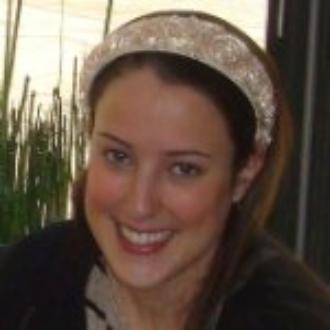The Difference Maker
Becker Weisbrod Brings Poli-Sci Smarts Up North

There are a multitude of reasons to study political science. One can, in fact, apply their degree toward a career in governmental office. Or, they can use it as the foundation for law school. Some people just want to know how the “system” works before they go out into the real world and try and find their niche. As for Chicago native and current Toronto-area resident Tamar Becker-Weisbrod, she simply wanted to make a difference, and after completing her undergraduate tenure in Poli-Sci at Touro’s Lander College for Women, acquired her Masters in Public Policy and Administration at Toronto’s Ryserson University. Today, she’s a Policy Advisor for the Ontario Ministry of Economic Development and Innovation. That trajectory isn’t exactly how she pictured it in grade school, but the result is precisely what she’d been aspiring for.
“I always thought I was going to be a lawyer, from elementary school through high school at Hanna Sacks and my year in Israel at Tomer Devorah,” she concedes. “As a child, it was the justice thing…. When I graduated [Touro], I was still considering law school, but it kind of came into my eye to look into this idea of public policy. It was really attractive to me. It’s a really fulfilling career. You’re influencing policy that actually helps people, you’re making lives better.”
For the average person, Becker-Weisbrod’s job description probably sounds ambiguous at best, particularly given the fact that she’s chosen her career north of the border. But in the simplest terms, and ones any North American can appreciate, she and her colleagues help visionaries and small businesses flourish and ensure the growing infrastructure of their region. “This Ministry works a lot with the private sector,” Becker-Weisbrod elaborates. “They give grants to different companies and entrepreneurs. We have different clients who come to us that we partner with, and they actually deliver services to different businesses around Ontario and entrepreneurs who have great ideas, and more specifically, high-tech type of ideas.”
In other words, and as opposed to the often-biased meting out of resources from higher office, Becker-Weisbrod directly allocates funding and support to the community. In effect, she’s an ambassador between the bureaucracy of politics and needs of the people. “The whole idea is to get the economy moving,” she says. “To create jobs, to boost a knowledge-based economy.”
To most U.S. citizens, it probably sounds like utopia. But Becker-Weisbrod clarifies that, while the semantics vary, most of how policy gets executed in Canada and America is fairly similar. With one notable distinction: “The health-care system is so different in the States, and in a weird way, defines a lot,” she acknowledges. “It defines the tax system, which is so different here in Canada. There’s this pride here that they have in their health insurance, and it’s part of their identity, so health is very much at the center of a lot of public policy here.”
Another part of Becker-Weisbrod, and many Torontonians’, identity is her connection to Judaism. Neighborhoods like Bathurst Street represent the city’s bustling Jewish population, one that’s actively engaged with the world of community outreach. Becker-Weisbrod and her husband are the youth directors in a small Jewish development called the Forest Hill Jewish Centre, and organize Shabbat programs, Hannukah parties and other events that “get the children into learning about the holidays and get them excited,” she says. One such example was this past March, when they had the kids gather at a castle in the area and dress as characters from the Purim story. “The families aren’t necessarily religious,” she adds. “The kids aren’t necessarily in Jewish schools, but their parents want them to learn a bit. They may not necessarily know anything about the holidays or do anything at home, so the educational program that’s designed isn’t this intense school. It’s more fun. It’s about getting the kids to ask questions about it.”
Considering her daily occupation and passion for interacting up-close with her neighbors, it might be hard to imagine Becker-Weisbrod someday transitioning to the less accessible plane of political candidacy. She does confess though, “It’s something that I’m considering, that’s in the back of my mind,” but for the time being, she’s continuing to gather experience at the administrative level. When pressed about her hopes for what lies ahead, she simply states, “I want to make a difference with my life and in my community. I’m very passionate about the Jewish community and Jewish people. I don’t want to be the one who’s sitting by and just letting things happen, so with this career, hopefully I’ll be able to be one of these people who are making a positive difference.”

